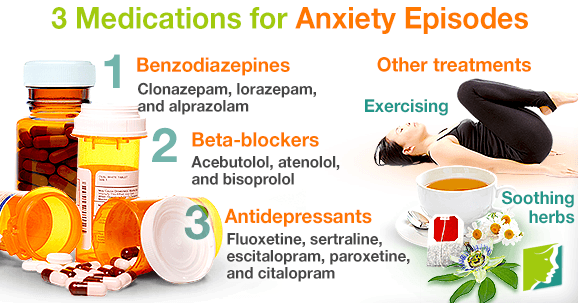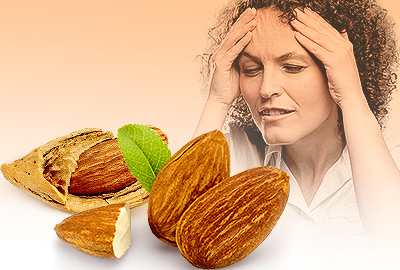On average, anxiety disorders affect more than 40 million Americans. Anxiety is a mental condition that is characterized by the strong, persistent feelings of worry, tension, and nervousness, even when there is usually nothing to provoke these feelings. There are many types of anxiety disorders, which can include generalized anxiety disorder, panic disorder, social phobia, post-traumatic stress disorder, and obsessive compulsive disorder. Anxiety is twice as likely to affect women as men, most likely because of hormone fluctuations experienced after puberty. There are several medications that can help combat anxiety episodes.
About Anxiety
Anxiety can be triggered by many things, like hormone fluctuations, excessive stress, genetics, certain medications, emotional trauma, inactive lifestyle, and poor diet. Symptoms of anxiety can be either physical or psychological. Physical symptoms can include sweating, dizziness, rapid heart rate, shortness of breath, muscle tension, insomnia, and headaches. Psychological symptoms can be anything from feelings of dread and intense fear, restlessness, and irritability to a feeling of impending disaster.
Medications
There are several anti-anxiety medications that have been shown to be effective in treating anxiety episodes.
Benzodiazepines
These anti-anxiety medications start working rapidly, and are typically used to treat general anxiety disorder, panic disorders, and social phobia. They have a sedative effect on the nervous system. Clonazepam, lorazepam, and alprazolam are generic types of benzodiazepines.
Beta-blockers
Beta-blockers help manage physical symptoms of anxiety, like trembling and sweating. They work by blocking the adrenaline hormone, causing the heart to beat more slowly and with less force. Beta-blockers can also be prescribed for heart conditions, like high blood pressure, because they help open up blood vessels to improve blood flow. Acebutolol, atenolol, and bisoprolol are all examples of generic beta-blockers.
Antidepressants
In some cases, antidepressants are prescribed to treat anxiety. When treating anxiety disorders, antidepressants are usually started out with low doses and increased over time if the need arises. Fluoxetine, sertraline, escitalopram, paroxetine, and citalopram are commonly prescribed for panic disorder, obsessive compulsive disorder, post-traumatic stress disorder, and social phobia.
Other Treatments
Natural treatments, like herbal remedies and exercising can also be beneficial in easing anxiety episodes. Herbs that possess strong sedative properties have been shown to calm the nerves and soothe restlessness and nervousness. These soothing herbs include chamomile, lavender, hops, valerian, lemon balm, and passion flower. These herbal remedies are available in tablet form or as dried leaves to be made into teas and tinctures.
Exercising for around 30 minutes a day has also been known to reduce stress, improve mood, and increase energy. Yoga, walking, and swimming are all excellent low-impact workouts that are effective in combating anxiety.
Anxiety episodes can range from mild to severe, and can affect your relationships and ability to carry out every day activities. There are many treatment options for anxiety that have been shown to be beneficial. Prescription medications, herbal remedies and getting regular exercise are all helpful ways to ease anxiety. It is important to try and find the treatment option that works best for you.
Sources
- Javnbakht, M. , Hejazi Kenari, R. & Ghasemi, M. (2009). Effects of yoga on depression and anxiety of women. Complementary therapies in clinical practice, 15(2), 102-104. doi: 10.1016/j.ctcp.2009.01.003.
- National Institute of Mental Health. (n.d.). Anxiety Disorders. Retrieved September 23, 2014, from http://www.nimh.nih.gov/health/publications/anxiety-disorders/index.shtml
- National Institute of Mental Health. (2008). Introduction: Mental Health Medications. Retrieved September 23, 2014, from http://www.nimh.nih.gov/health/publications/mental-health-medications/index.shtml#pub7




